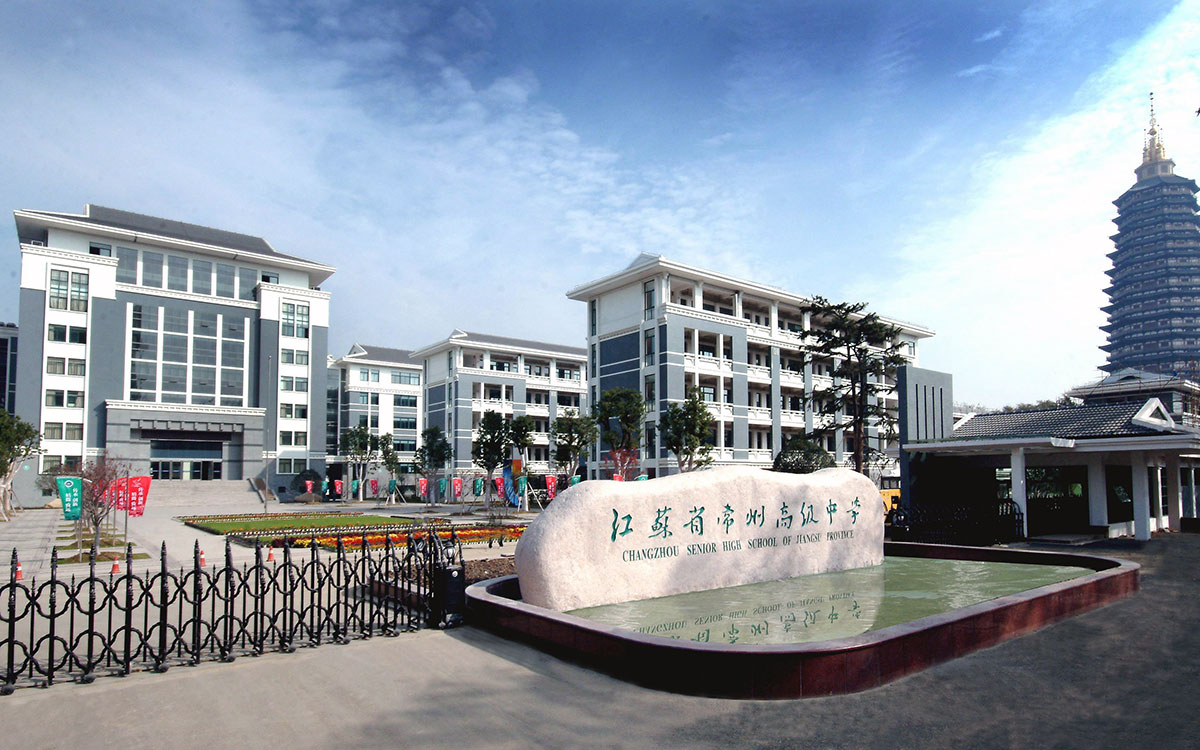
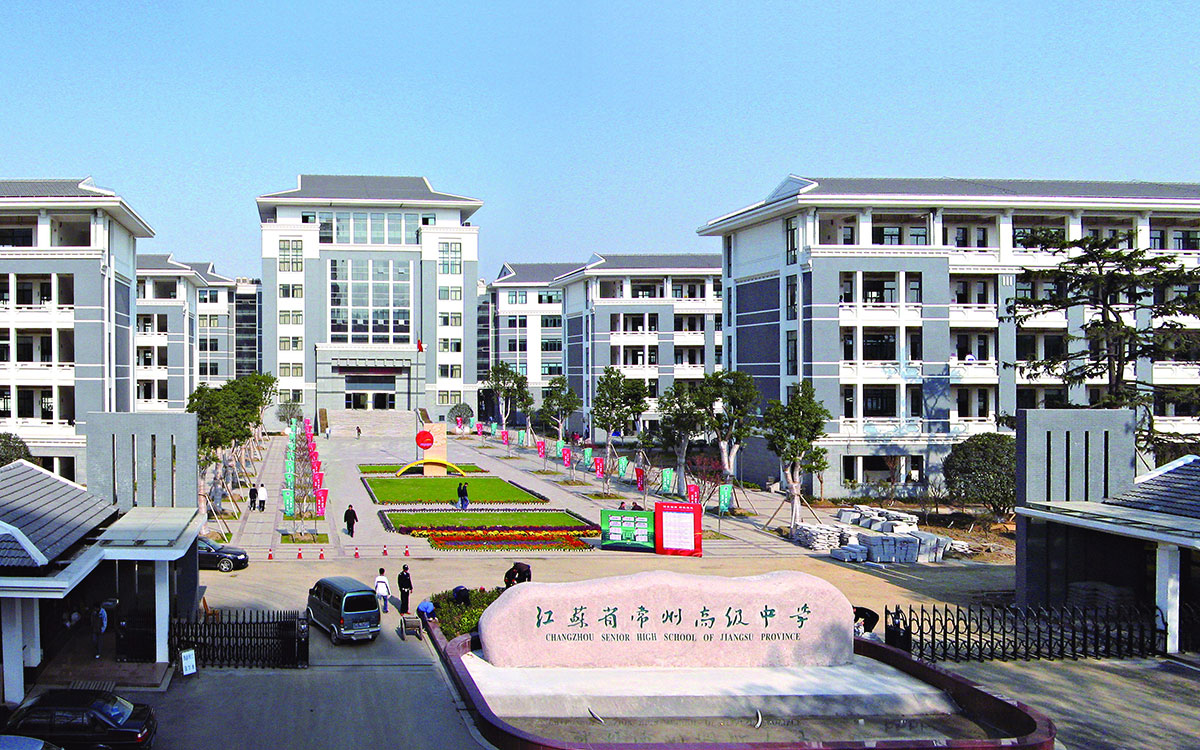
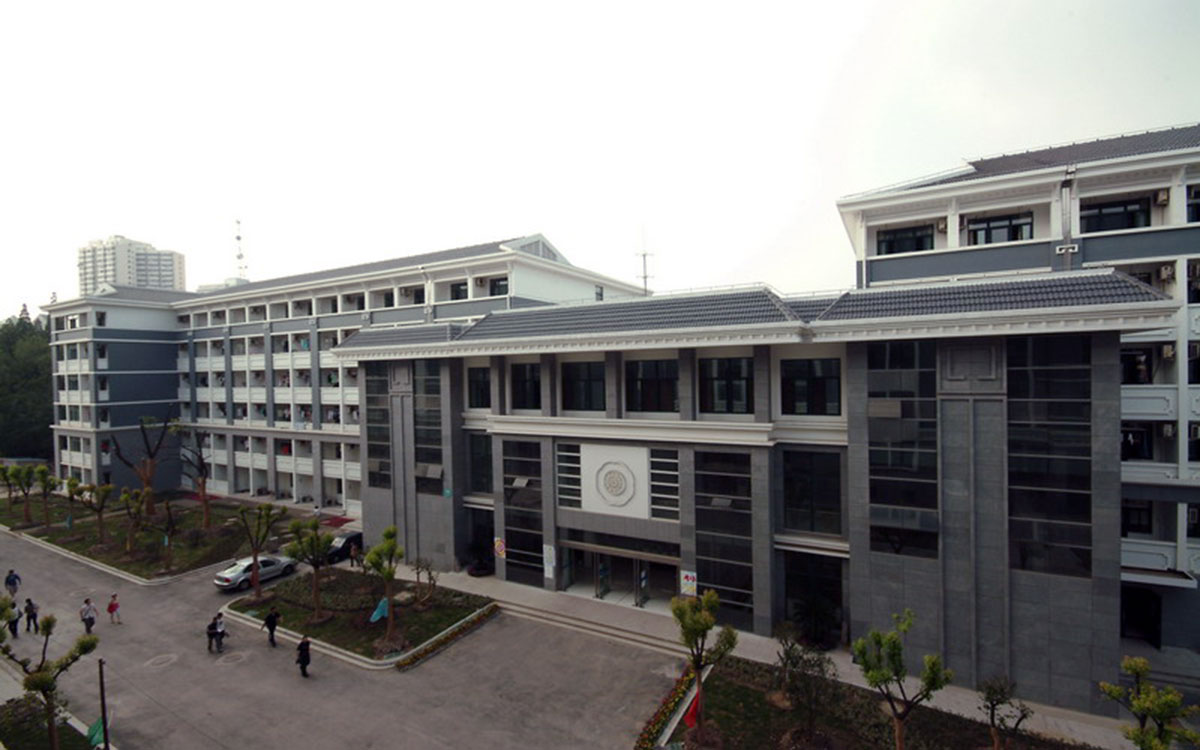
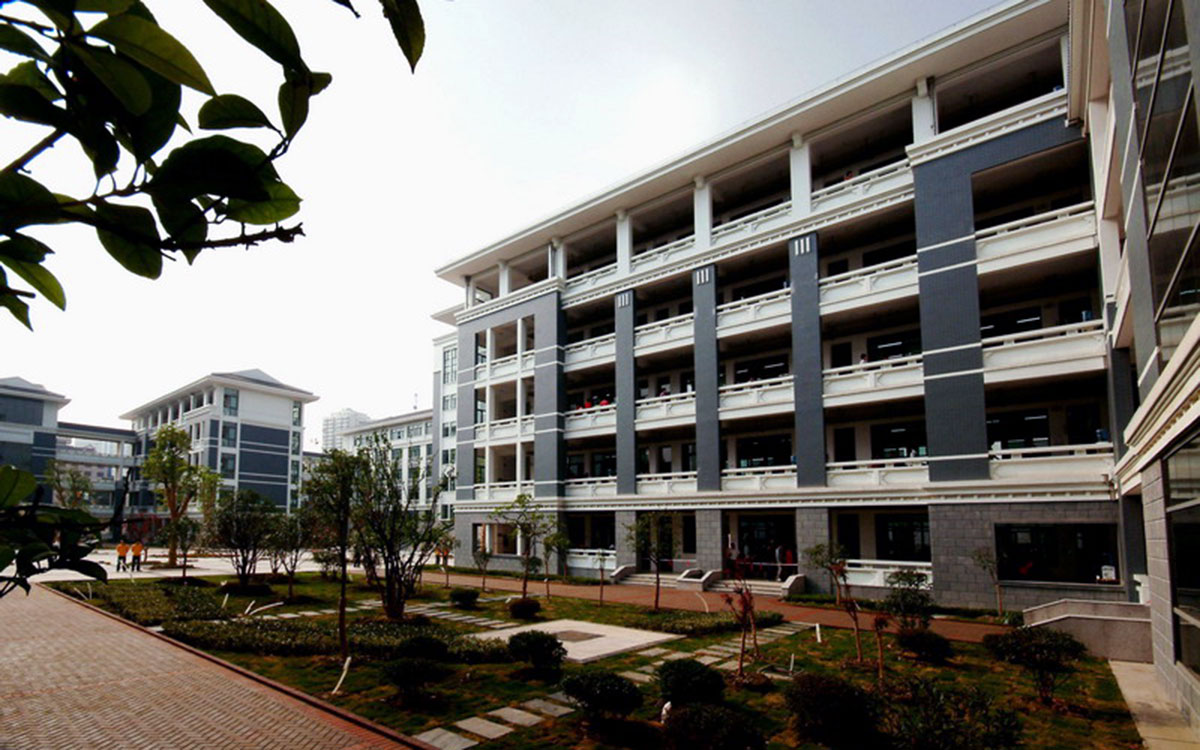
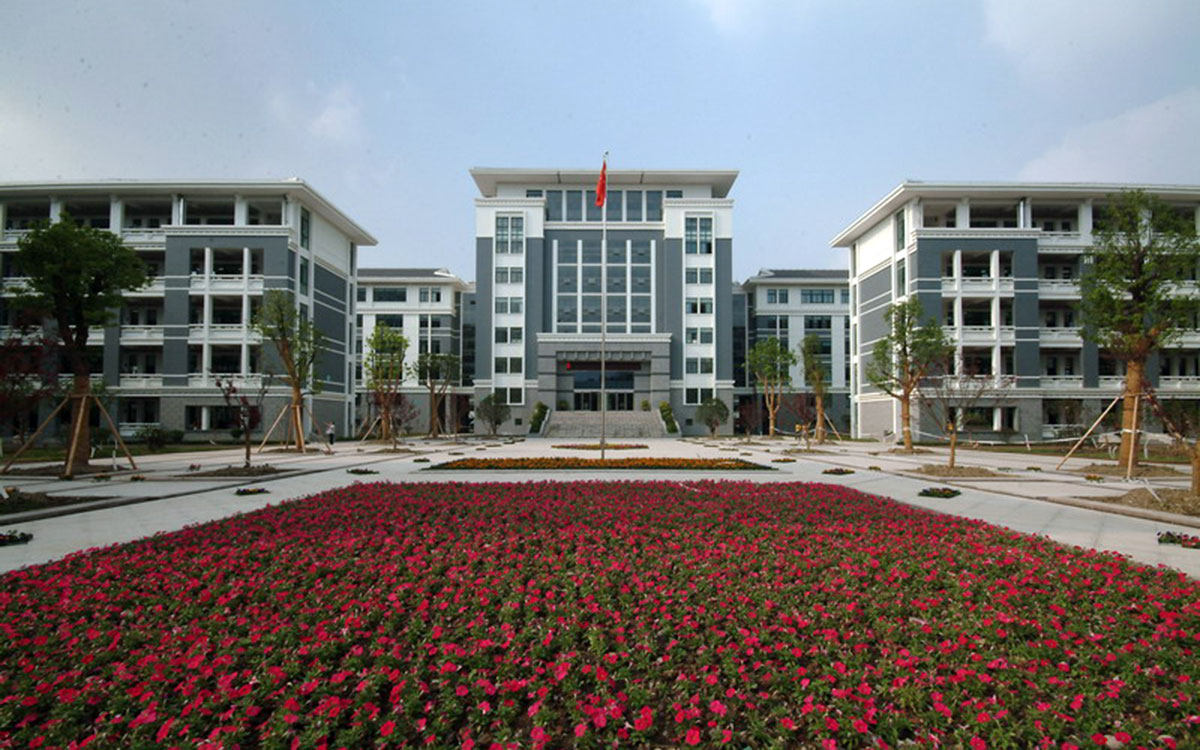
About the Host School
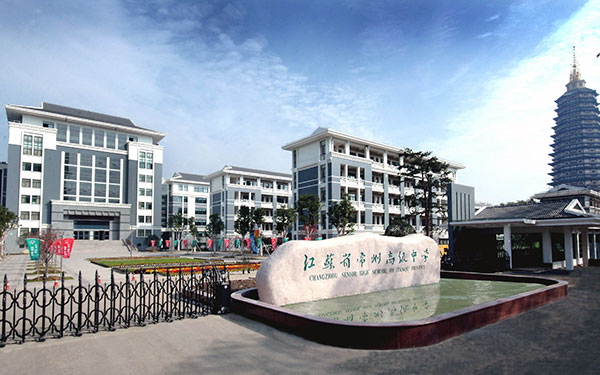
Changzhou Senior High School of Jiangsu Province (SCZ) was founded in 1907. Offering both a Chinese and AP curriculum, we are a key public high school at the city level and recognized as a “model” school at the provincial level. The high school serves grades 10 through 12 and has an enrollment of more than 2000 students (including 250 students in the AP center). Well located centrally in the city, the school is located adjacent to Hongmei Park and pagoda.
About the AP Centre
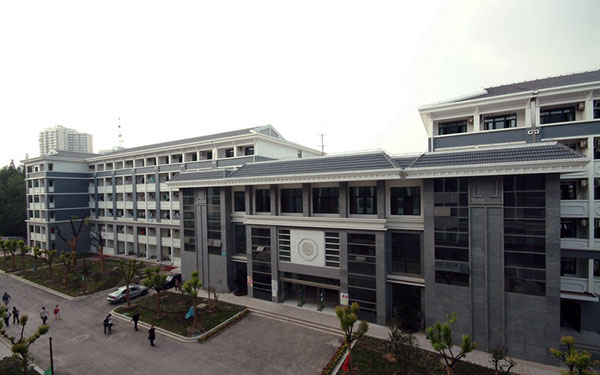
Dipont’s AP Center Program was launched at Changzhou Senior High School in September 2011.
The school has numerous opportunities for the students to become involved in co-curricular activities. Foreign teachers are involved in AP Student Council, Photography Club, Drama Club, Book Club, Drama Production, Yearbook Club, as well as many competitions such as MUN, STEM, Business and Mathematics contests and Harvard Debate.
Lifestyle
Changzhou Senior High School is in Tianning. The closest major intersection is Yanling Lu and Heping Lu about 200 meters southwest of campus. Yanling Lu is the major east-west street through the central, downtown area. There are a numerous apartment complexes within an easy walk to school, but staff choose to live in a range of different areas across the city.
General day to day cost of living in Changzhou is very inexpensive. Chinese food products are extremely reasonably priced, although imported food is much more costly. Transportation is also very inexpensive and Changzhou is very well connected by rail to cities such as Suzhou and Wuxi (15 minutes), Nanjing (30 to 45 minutes) and Shanghai (1 hour). Changzhou also has a domestic airport. Development in Changzhou has been extensive with significant foreign investment and the creation of a hi-tech district. This strong, modern economy sits alongside ancient monuments and a range of tourist attractions.
Teacher Case Study
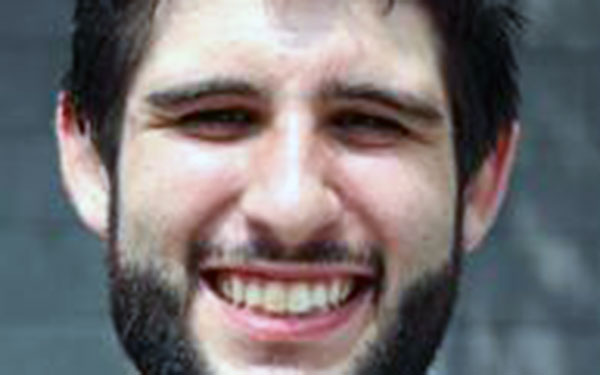
Nick Cala, Teacher
Before joining the Changzhou team, I had studied history and education at Gettysburg College. Working with diverse students of Hispanic background in the US gave me a great deal of experience in adapting my lessons for English language learners and provided me with invaluable skills that have proven to be essential to teaching here. Following my time at Gettysburg, I attended Teachers College at Columbia University and received my Masters in the Teaching of Social Studies. Working in New York City forced me to reevaluate my ideas about the degree to which context affects how you teach. Having thirty students with extremely different bases of experience but all sharing the same urban lifestyle forced me to get creative to ensure an inclusive classroom atmosphere. Although my classroom is more homogenous in Changzhou, I’ve found that the students here nonetheless will engage at a much deeper level when they feel that what makes them unique is embedded in the classroom environment. For this reason, my time spent in New York City certainly had a profound effect on my pedagogy.
I would describe my role as being that of a student of my students. Although facilitating student understanding of content is an essential part of my job, the real hard work is figuring out what students already know, what misconceptions they have, and then how you can use that prior knowledge to challenge them in a productive way. In this way, the most important part of teaching, I believe, is seeking to empathize with one’s students. By putting yourself in their shoes, you not only can build a better culture for learning but also can improve student-teacher rapport. Students feel more welcomed and happier when they feel that they have a teacher who cares about them (and this, too, improves learning outcomes). Whenever I step into the classroom, I try to view myself not as someone who knows everything about my subject but rather someone learning who my students are to help them to understand the subject. My role is and always will be centered on who the students are and what they bring to the classroom.
The most significant benefit of Changzhou is the unique team-based approach that we bring to the classroom. Whenever I have any issue that I’m thinking about or anything I’m uncertain of, I feel extremely comfortable approaching any of my colleagues to open up a discussion. This is the ultimate form of “professional development” in which teachers—experienced and young, more teacher-centered or more student-centered—are open to learning from each other and exchanging a free-flow of ideas. Moreover, in Changzhou, our subjects often blend into each other. My World War II unit in U.S. History and the nuclear physics unit certainly have some overlap when it comes to the bombings of Hiroshima and Nagasaki. The Gilded Age also certainly has numerous areas of overlap with Macroeconomic concepts about GDP, externalities and laissez-faire capitalism. By working together, we can help students to see the interconnectedness of the curriculum and deepen their understandings of each individual subject.
Living in Changzhou has a great experience that has helped me to personally grow. I studied Chinese and Chinese history while I was at Gettysburg College which I thought would be enough to engage with the people and the culture to an extent. However, if being here has taught me anything, it’s how little I understand and how much I still have to learn. On Saturdays, I often take a walk around our local Hongmei Park. It is always teeming with life—people singing, playing badminton, visiting the pagoda, playing in the water, riding in boats, and playing traditional Chinese instruments. Although I have been to numerous other cities, it is here that most engages my curiosity and my interest. It is here that I see the rich community life of Changzhou. It is here that I can try to understand the unique culture that is all around me—even if I often fail with my clumsy Chinese and my inability to understand the social cues. Similarly, my waiguo (foreign) friends have also helped to make this an incredibly pleasant place to live. Whenever I’ve felt discouraged, upset, or culture shocked, there has always been caring support from the community of foreign teachers here. Even more importantly, those tougher times are fewer and further between because we are always helping each other to laugh and enjoy every day.
Student Case Study
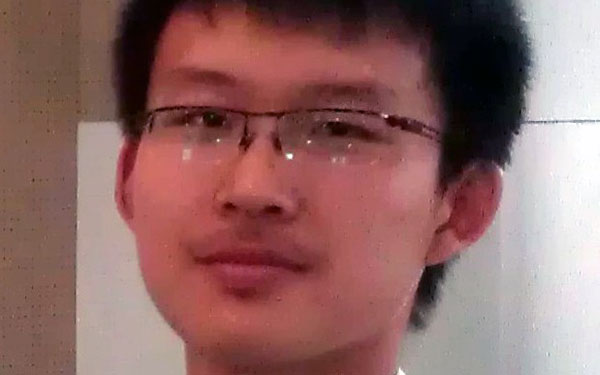
Frank Wang
I started my fantastic AP Center experience in the fall of 2011. It not only includes academic study but also joy and fun. In Changzhou Senior High School, my teachers and all AP center students hold holiday celebrations, participate in Sports Day, and organize different club activities. I should say thank you to all of these great teachers as well as my fellow classmates because we all have fun and share highs and lows together.
I have gained knowledge in Physics, Economics, US History, Calculus, and Literature. Through learning in English and support from my teachers, my English skills have improved step by step. I can write more accurate and concise essays, speak more fluently, and understand what I am listening to better. Also, I have improved my study skills such as note taking, summarizing, and discussing questions with my classmates. Moreover, having participated in various activities, I have learned how to organize and prepare activities. Unexpected situations that occur during activities have helped me become a more critical thinker. I joined the Model United Nations club, drama club, and photography club, which brought me fun and unforgettable memories. MUN, for instance, is the most important one because it helped me to understand the world from different perspectives. And it taught me that I should set goals, otherwise, I will lose direction.
One major challenge for me is improving my English skills. Because I am not a native English speaker and I am going to America for higher education, I still need to practice more to improve English. It is the basis for my studies. Also, I have to manage my time efficiently in order to complete necessary homework assignments and do some hobbies and activities. It is difficult to balance leisure time, study time, and extracurricular time because I want to do many things within a limited time. Thus, I need to make choices to do what is the most valuable and meaningful.
Stanford is my current dream school. My plan is pretty simple—focus on current studying and activities. I believe the normal curriculum at school is still the most important part of preparation for applying to a university. I still want to continue my journey in MUN although it may be hard for me because of my limited time. The other part of my plan is to practice English as much as possible. I should read online, newspapers, and books and watch TV shows, movies, or documentaries in English. After the AP exam in May next year, I will shift my concentration to prepare for standard tests, the SAT and TOEFL tests.
I think high school life is precious because when we are in high school, we are free of worries about jobs. We devote our time and energy to studies, activities, and everything we want to do and then we really enjoy the process rather than the final outcomes. We may fail but we should have a sense of growth.

